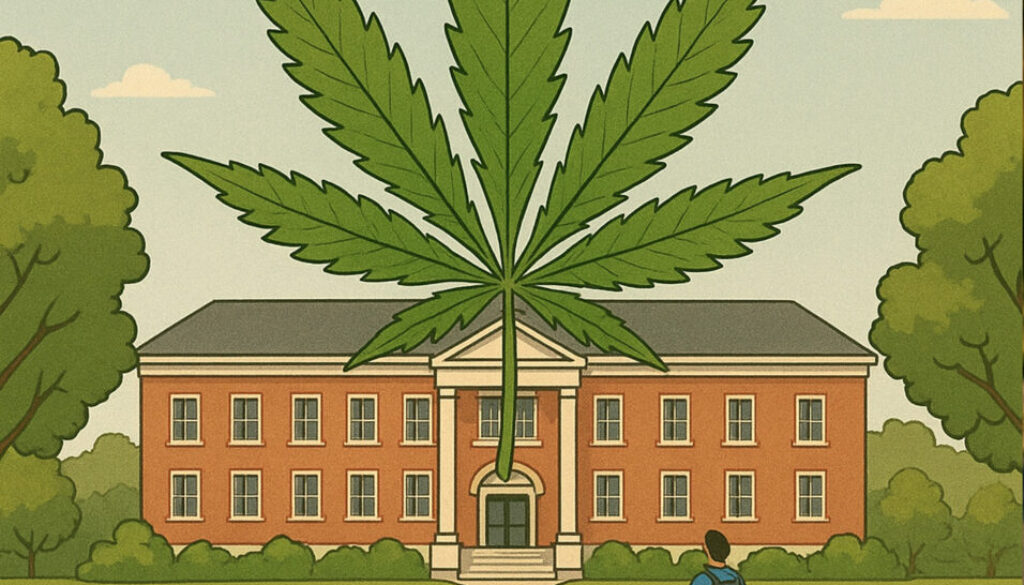Cannabis on Campus: A Study of Its Academic and Social Impact on College Students. Presents the findings from a study conducted at Washington State University. The study’s primary objective was to investigate the effects of cannabis use on the academic and social lives of college students.
Key Findings:
- Academic Performance: The study found no significant direct impact on GPA from cannabis use. However, it did find a negative correlation between higher cannabis usage and academic motivation, memory issues, and an increased likelihood of procrastination. Occasional users did not report a significant academic decline, suggesting that the frequency of use plays a key role.
- Mental Health: Many students reported using cannabis to manage stress and anxiety. While some found temporary relief, others noted that heavy use could lead to increased anxiety over time. This aligns with existing research suggesting a paradoxical effect of cannabis on mental health.
- Social Impact: The study found a positive correlation between cannabis use and feeling more comfortable in social settings. However, it also noted a negative side, where students might skip studying or coursework to use cannabis socially.
- Limitations: The paper acknowledges several limitations, including the small sample size (121 students, mostly business majors), the use of self-reported data, and the correlational nature of the study, which means it cannot establish causation.
Methodology:
- The study used a quantitative research approach, employing a survey with Likert scale questions to measure the relationship between various independent and dependent variables.
- A convenience sampling method was used, surveying students, friends, and coworkers who were in college.
- The independent variables included factors like age, major, and frequency of cannabis use, while the dependent variables included GPA, motivation, social comfort, and attendance.
Conclusion:
The research suggests that while cannabis use may not directly lower a student’s GPA, it is associated with a decrease in academic motivation and an increase in self-reported academic struggles. The study also highlights the complex relationship between cannabis use and mental health and social engagement, noting both perceived benefits and drawbacks. It concludes by recommending future studies with broader sampling and longitudinal methods to better understand the dynamics of cannabis use in a college setting.

